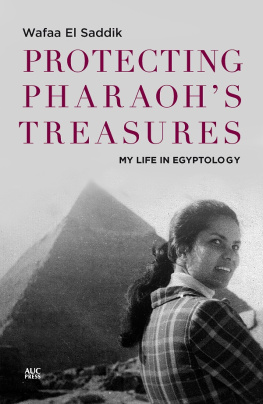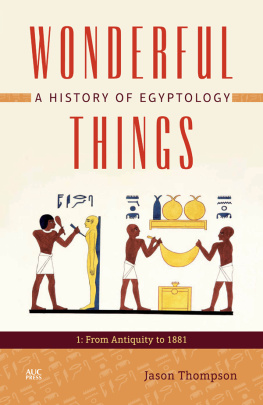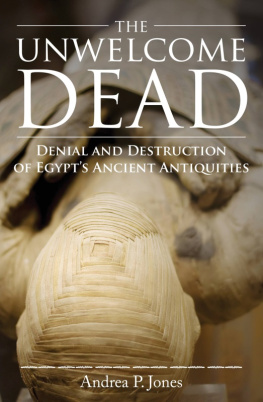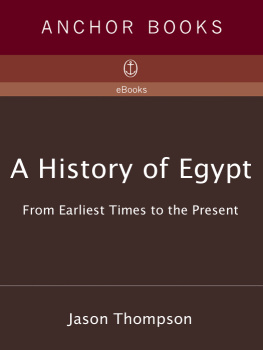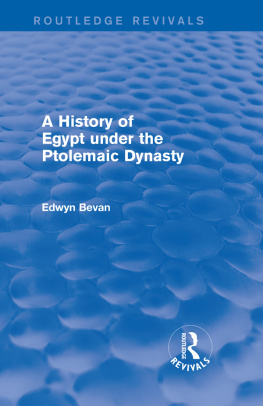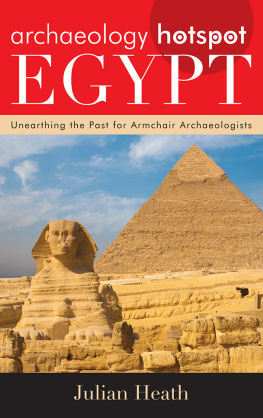
This electronic edition published in 2017 by
The American University in Cairo Press
113 Sharia Kasr el Aini, Cairo, Egypt
420 Fifth Avenue, New York, NY 10018
www.aucpress.com
Copyright 2013, 2017 by Wafaa El Saddik
First published in German as Es gibt nur den geraden Weg: Mein Leben als Schatzhterin gyptens, copyright 2013 by Verlag Kiepenheuer & Witsch GmbH & Co. KG, Cologne, Germany
All rights reserved. No part of this publication may be reproduced, stored in a retrieval system, or transmitted in any form or by any means, electronic, mechanical, photocopying, recording, or otherwise, without the prior written permission of the publisher.
ISBN 978 977 416 825 3
eISBN 978 1 61797 785 5
Version 1
For Hadi, Tarek, and Azmy
CONTENTS
S abah is back, and I cant tell you how happy that makes me. Since the days of the plundering, Sabah had not set foot in the Egyptian Museum. Dark, lost years. The shattered vitrines, the damaged objects, and the artifacts missing to this daywith that despicable break-in and unspeakable theft, to Sabah the integrity of the building had been violated. It was as if an ultimate taboo had been broken, and she could no longer feel right in the museum.
How many years we spent side by side in the treasury of the pharaohs! I remember our first days in the cellar, when we fought our way through the cobwebs for the first time, through stacks of crates and boxes that turned the depot into a giant labyrinth. Sabah even screwed in the lightbulbs herself in order to shine light into forgotten corners. For years we worked in the cellar and tried to reorganize the building on Tahrir Square from top to bottom. We labored as if it were possible to do such a thing in the tenure of a single director. Presumptuous of us!
Of course it was presumptuous, but we did what we could: arranged and listed, documented and repositioned, and where possible sent works of art to the countrys new regional museums. We did what generations of our predecessors had not even attempted. We often sat at the computer until late at night, made it possible to look up finds from long-forgotten excavations, and combined artifacts into new exhibits. We worked in opposition to self-important bureaucratic inanities, to corruption and ignorance. All that is described in the present book. But nothing depressed me over the long term more than Sabahs absence all those months since the plundering of the museum. Sabah stands for tomorrow, for the future, for hope. And she is precisely what we need in the museum and in the entire country.
Five years have passed since the Revolution. And where do we stand today? Prices are rising higher and higher, and incomes dont keep up with them. In Luxor the hotels are empty. In many faces I read sadness and despair. Many families are going into debt merely to survive. I find it altogether incomprehensible how millions of poor and unemployed people manage their everyday lives. I travel to Luxor, where I know many people: the families of my former excavation teams, colleagues, and friends. Many of the citys people are starving. Many lack the money to send their children to school. There is so little work in the hotels and restaurants that their employees alternate shifts so as to earn at least a little something. One man I know is paid le 200 a month (about $25), of which he spends le 120 on his sons medications. Since the Revolution revenues from tourism have dropped by le 66 billion; 275 hotel ships stand empty, and a mere 5 percent of the hotels remain open. More than four thousand tour guides have left the country.
Luxor, that beautiful, restful cityhundred-gated Thebes, Diospolis magna , as the Greek writer Herodotus called it, that picturesque landscape with its wonderful climateand not a single smile on its peoples faces. I look at the Nile, to Egyptians the eternal river. It is the same river that created Egypts high culture. Since the beginning, people have drunk its water, and they still drink it today. The river hasnt changed, but the Egyptians have. They were always thought of as the Mediterraneans easy-going, humorous peoplebut their jokes have become cruel, and theres no more laughter.
Barely a year after Mubaraks fall, people were perplexed, faced with a choice between plague and cholera, between the old regime and Morsi. After the military, the Muslim Brotherhood was the best-organized political force in the country. But like Mubarak, it had no practical experience with democracy. Morsis Freedom and Justice Party won the first free elections, thenfollowing the pattern of Mubarak and his predecessorsgrabbed more and more power to itself. Women, especially, had to fear for the rights and entitlements they had attained in the past sixty years. For women it was a year of profound depression. The Egyptians said, weve given Morsi a drivers license, but he doesnt even know how to drive.
Egypt seemed to be sinking into chaos. People were afraid to go out at night. My friend Azzas husband was kidnapped. When her son tried to pay the ransom, he too was snatched. Then came terrible news from Luxor. Mariam, my Coptic friend, called me in tears on January 7, 2013: Two friends of mine, the daughters of Tawfik Pasha Andraus, a member of the Wafd Party in King Farouks time, had been murdered in their home in Luxor. Laudy, seventy-nine, and Sofi, eighty-two, were found dead in their rooms. To this day there has been no explanation of the crime. I was shocked and speechless. I had known the two aristocratic women since my excavations in Luxor in the 1980s. I often visited them for afternoon coffee. We would talk about the history of their home, a venerable palace that has stood on the bank of the Nile near the Luxor temple for more than 150 years. In it hung paintings by Italian masters, and it was filled with precious antiques and fine old furniture. The former governor of Luxor, Samir Farag, wanted to raze the house, but Laudy and Sofi defied his attempts to condemn it. In their wills they specified that the house was to be given to the state so that it might be used for a museum. Police investigations determined that the palaces contents had been untouched. So the murderers motive wasnt robbery.
Perhaps it will later be determined why criminality shot up precisely under the rule of the Muslim Brotherhood: kidnappings, murders, plunderings. For that reason, on June 30, 2013, millions of people took to the streets demanding that the army intervene. For them el-Sisi was Egypts savior. At the time I was working on a book about the Amarna period, about the intolerance of Akhenatens religious revolution. It seemed that history was repeating itself. Then too Egypt was facing collapse, and it was only the army general Horemhebs seizure of power that brought stability.
Five years have passed since the Revolution. We have experienced violence, assassinations, arrests. I read the Egyptian news columns in foreign newspapers. I speak with worried and politically discouraged friends and acquaintances who gaze at the Nile filled with anxiety, who in fact know only the medias negative headlines. I see their skeptical responses when I remind them that the streets are safe, that social conditions are precarious, to be sure, but by no means chaotic; we no longer have to fear being robbed or kidnapped. The historic sites are secure, archaeologists are at work again. There are many signs of hope.
It was a bitter blow for me when the childrens museum within the Egyptian Museum was closed. I had invested so much work and love in the creation of that gift to Egypts children. In the face of the plundering and illegal excavations of the past few years, I have deliberately devoted all my time to my museum education efforts. To my mind it is the only effective way to counter the threat to our ancient heritage by our own people. Only when our children take the protection of ancient sites into their own hands will we be able to save themour children are our legacy. For they need history and identity. With the support of all my undaunted and faithful colleagues in European and American museums, I organize workshops for children and young people. Among them are more and more children from Syria, traumatized and apathetic. But I manage to make them happy, if only for a few hours.

